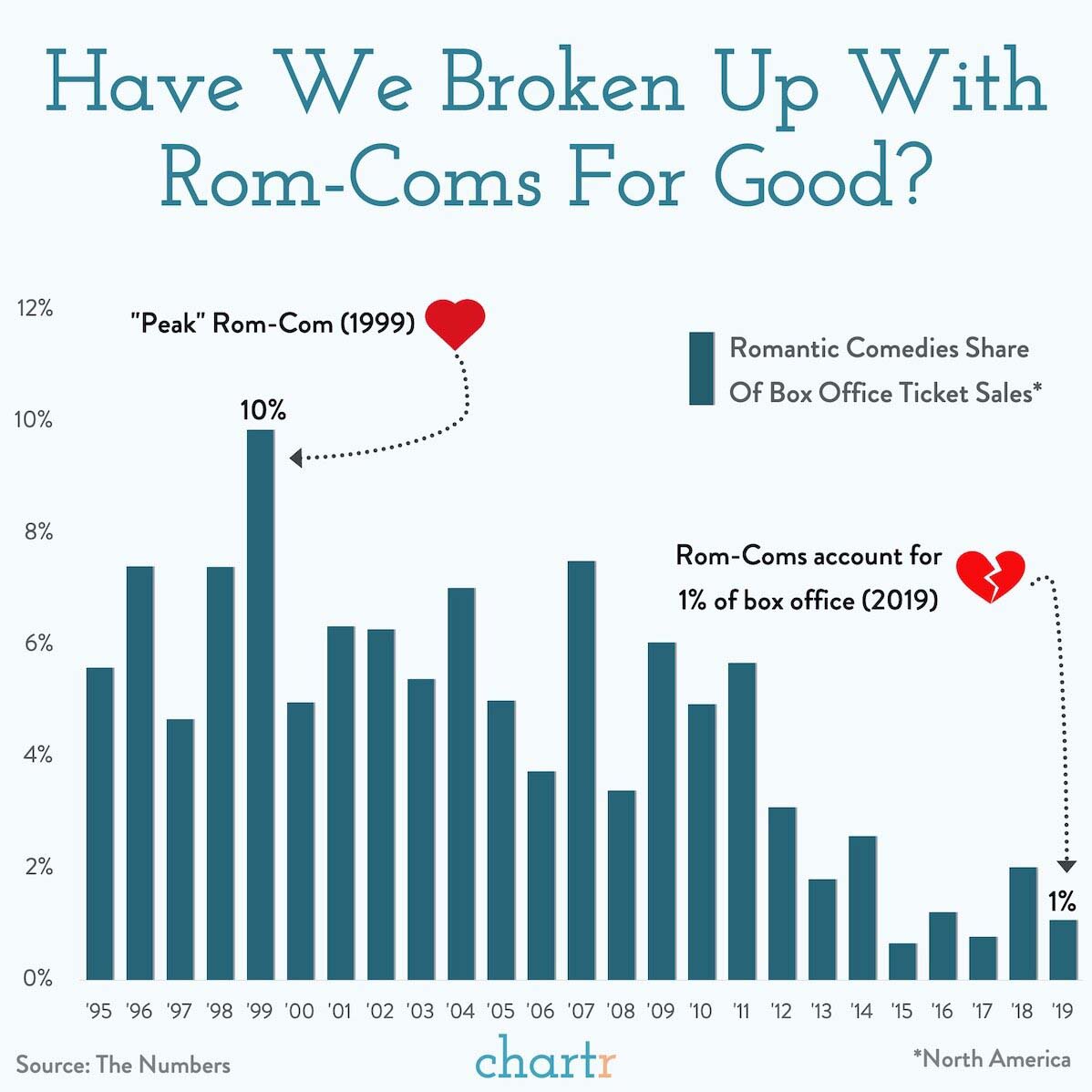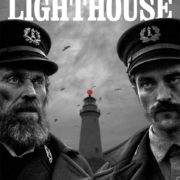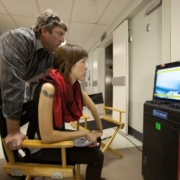Rom-Coms Rebound with Streaming Services
There was a time when romantic comedies used to dominate theaters. From Annie Hall to Love Actually, Rom-Coms stood out as one of the central pillars of movie genres. Within the past few years, however, the Rom-Com fell to the wayside of big-budget blockbusters and Oscar-bait movies. Fortunately, streaming services like Netflix recognized the opportunity to capitalize on Rom-Coms. They discovered that their audiences were clamoring for the classic Rom-Coms to get their meet-cute fix. And this epiphany has paid off handsomely.
Let’s take a look at how the Rom-Com has made a comeback with streaming services.
Amount of Time Spent Watching Netflix Original Rom-Coms
Whether audiences prefer to watch Rom-Coms from the comfort of their homes or studios just aren’t investing in theatrical releases to the extent they would their superhero counterparts, streaming services picked up the slack.
Take Netflix, for example. The streaming giant has invested in a steady stream of romantic comedies in recent years to great success. In the chart below, Netflix Original Rom-Coms generated millions of minutes of viewing time with Holidate and Love Hard topping the charts! That’s incredible for a genre that is supposedly dead!

Despite what some may say about romantic comedies being dead, they still generate huge numbers within the streaming circuit. Some publications proclaim that audiences are bored of the same repackaged tropes. However, the numbers don’t lie.
The films that Netflix has hedged its bet on certainly utilize the classic rom-com tropes, but also take it to a whole other level of humor and self-awareness that helps to keep them fresh. In fact, sometimes the online scrutiny of such films clouds the waters from the reality that’s otherwise plain and clear – people still love their rom-coms.
Why have theaters given up on Rom-Coms?
There are many reasons why Rom-Coms have suffered at the box office since 2019. If you scanned the top 200 grossing movies of all time, you won’t find one Rom-Com. The demand for blockbuster movies has changed the landscape of the quantity and type of movies released – for better or worse. Simply put, the money invested into huge blockbusters produces a much higher ROI. Not to mention, merchandising is also a large part of studio moviemaking. Unfortunately, a karate-chopping Bridget Jones action figure doesn’t hold the same effect among consumers as, say, Captain Marvel.

The Rom-Com genre peaked in 1999 with such films as 10 Things I Hate About You, She’s All That, Notting Hill, Never Been Kissed, Drive Me Crazy, and Runaway Bride – just to name a few. These movies are not only fun and entertaining but include well-written characters arcs and plots that leave audiences coming back time and again.
Perhaps, it’s not the Rom-Com genre itself that speaks to its lack of performance. Instead, its poor numbers could be the result of the studio system and the kind of Rom-Coms it chooses to make.
We are constantly battered by cynics from various publications who claim to have the answer to why the genre descended into a downward spiral since the early 2000s. Well, we have got some news for them. For the same reasons that they claim that meet-cutes fail today – such as the aforementioned tropes – they thrive in the streaming realm.
Perhaps, movies that go to theaters are held to too high of a standard. Or, maybe the studio system no longer understands its audience. In the past, they certainly didn’t have to contend with online scrutiny. Now, such discussions often dissolve the fun-loving nature of pop-rom-coms into an acid bath of toxic commentary.
The Future of Rom-Coms
As long as there’s an audience for the Rom-Com, there will always be a place for them – whether it’s with streaming services or elsewhere.
The genre continues to evolve with cinematographers like Shane Hurlbut, ASC. Hurlbut visually conveys an updated cinematic look that resonates with Millennials and Generation Z. In fact, he was the cinematographer behind both Holidate and Love Hard.

Still from Holidate, 2020
Holidate follows Sloane (Emma Robers) who is fed up with her family judging her for being single during the holidays and makes an agreement with Jackson (Luke Bracey) to be each other’s platonic plus-ones for the holidays.

Love Hard, on the other hand, chronicles Natalie (Nina Dobrev) on her trip to surprise an East Coast guy that she met on a dating app. Only she finds that she has been catfished by Josh (Jimmy O. Yang). Josh promises to help her win over the guy whose image he used to attract her in the first place.
Both films are relatable to younger audiences with comedy that’s analogous to recent popular comedy hits. While this humor may not be your parents (as you may read from certain reviews), it’s the type of comedy that most millennials and later generations have become widely accustomed to from films like Superbad, Bridesmaids, and essentially every Judd Appotow film.
We live in a digital age with an all-encompassing internet. Not to mention a tad raunchier sense of humor that differs from the Rom-Coms of the past. That’s why the filmmakers of today must embrace those qualities when making the Rom-Coms of the future. And with the support of streaming services like Netflix, there will always be an outlet for the genre to grow and evolve.








